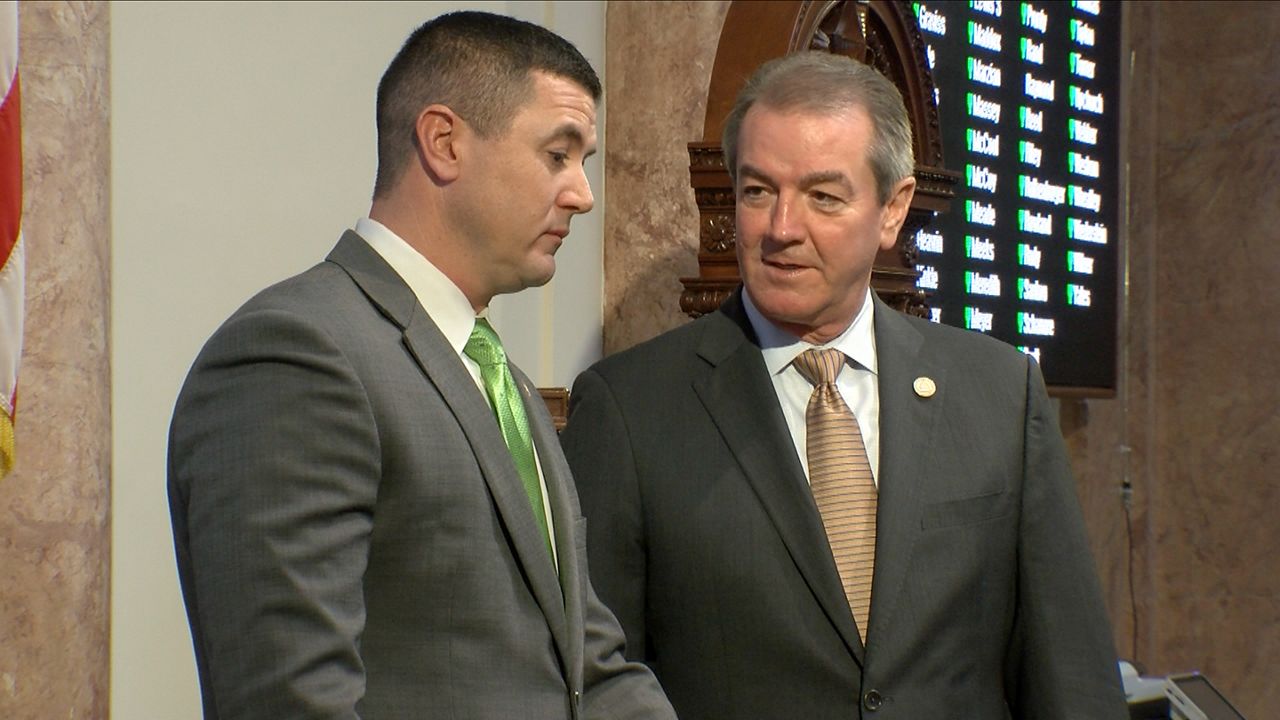FRANKFORT, Ky. - House Republicans have introduced their top priority in 2020: public assistance reform. Speaker Pro Tempore David Meade, R-Stanford, filed House Bill 1 Monday.
It includes several new rules, including a ban on the use of public assistance funds for alcohol, tobacco or vaping products. It also prohibits Supplemental Nutritional Assistance Program (SNAP) benefit recipients from spending more than 25% of their monthly allowance on soft drinks and energy drinks.
The bill also prohibits the transfer of an electronic benefit transfer (EBT) card to another person, places all state benefits onto one card, and prohibits the withdrawal of money from those cards. Meade said the primary goal is to prevent fraud.
“Some of the groups that testified (in meetings of the Public Assistance Reform Task Force in 2019) said that they thought there was about two percent fraud, or at least that’s what they were catching that they could calculate that number off of, but folks don’t commit fraud anticipating on getting caught,” Meade said. “So to say that we only have a two percent fraud rate is, in my opinion, that’s probably pretty ridiculous.”
House Bill 1 also establishes work requirements for Medicaid recipients, but only if the amount of money Kentucky spends on expanded Medicaid exceeds 75% of the overall Medicaid budget. Meade said he doesn’t expect that to happen in the next few years, but it will eventually.
When it happens, Medicaid recipients will have to prove they worked 80 hours each month. In order to enact those work requirements, Kentucky would have to seek a Medicaid waiver from the federal government, similar to one former Gov. Matt Bevin pursued. The proposal also includes a bridge to help people transition off Medicaid.
It requires anyone who is eligible for Medicaid and is actively employed but making less than 138% of the poverty level to enroll in their employer health insurance plan, if available, and it would cover the employee portion of the health insurance premium.
Anyone who is Medicaid-eligible, working and making between 138% and 200% of the federal poverty level would have their portion of the health insurance premiums covered for up to a year. Anyone who is unable to get health insurance through their employer would still have their premiums covered for 12 months if they purchase a plan from the federal health insurance marketplace.
“That’s the thing that kept coming up the most in the public assistance reform group, was that that bridge, and losing that insurance, is primarily what people were concerned about,” Meade said. “No one should have to make that choice if whether they’re going to provide insurance and security for their families or if they’re going to go out and make more money.”
The bill also requires anyone convicted of a drug felony to enter drug treatment within 90 days of their release from prison in order to keep their benefits.
“Instead of doing the drug testing and things like that, we’re trying to push people into drug rehab,” Meade said. House Speaker David Osborne, R-Prospect, said he expects the bill to be heard in committee sometime in the next couple weeks.



